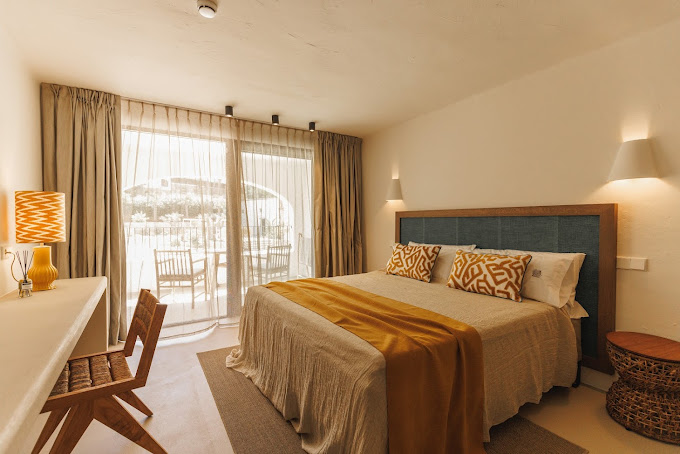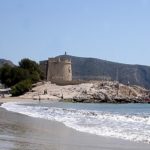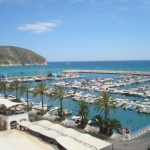Moraira, a picturesque coastal town nestled between mountains and the sea on Spain's Costa Blanca, is a gem for travelers seeking both beauty and sustainability. As the world becomes more conscious of environmental issues, the demand for eco-friendly accommodations has risen sharply. Moraira has responded to this call with a variety of green lodging options that cater to environmentally conscious tourists. This article explores the importance of eco-friendly accommodations, highlights some of the best green stays in Moraira, and offers tips for travelers wanting to maintain their sustainable habits while away from home.
The Importance of Eco-Friendly Accommodations
The travel industry significantly impacts the environment, from the carbon emissions of air travel to the water and energy consumption of hotels. Eco-friendly accommodations aim to mitigate these effects through sustainable practices. These can include the use of renewable energy sources, water-saving fixtures, recycling programs, and the incorporation of local materials and culture into their design and operations. By choosing to stay in such places, travelers can reduce their carbon footprint and support local economies.
Eco-Friendly Stays in Moraira
Hotel Los Limoneros, Moraira
Hotel Los Limoneros, nestled in the charming town of Moraira, is known for its cozy, home-like atmosphere and beautiful garden surroundings. While specifics on their eco-friendly practices are not directly available from my data, accommodations like Los Limoneros often implement green initiatives such as water conservation measures, energy-efficient lighting, and recycling programs. The hotel's use of local produce in their restaurant and the preservation of green spaces also contribute to a sustainable stay.
HOTEL MAÑET, Moraira
HOTEL MAÑET offers a unique stay with stunning sea views and an intimate setting. Eco-friendly measures in boutique hotels like MAÑET might include the use of locally-sourced materials and ingredients, reducing waste by offering bulk toiletry dispensers instead of single-use plastics, and encouraging guests to engage in local conservation efforts. Their commitment to providing a personalized and local experience often extends to sustainability.
La Sort Boutique Hotel, Moraira
La Sort Boutique Hotel is celebrated for its prime location and elegant design. Boutique hotels like La Sort are typically involved in sustainable practices by integrating energy-efficient systems, offering organic and locally-sourced food options, and minimizing their carbon footprint through sustainable transportation recommendations for guests. Their boutique nature allows for a more personalized approach to implementing eco-friendly practices
Hotel Serawa Moraira
Hotel Serawa Moraira, with its emphasis on natural materials and minimalist design, likely prioritizes sustainability through its operations. This could involve using renewable energy sources, furnishing rooms with sustainable materials, and adopting water-saving techniques. Serawa's philosophy often aligns with environmental stewardship, aiming to create a tranquil and eco-conscious guest experience.
Hotel Swiss Moraira
Hotel Swiss Moraira is set amidst a picturesque landscape, offering luxury combined with tranquility. Luxury hotels like Swiss Moraira can contribute to eco-friendly tourism by implementing rigorous recycling programs, using energy-efficient heating and cooling systems, and providing guests with eco-friendly amenities. The hotel's engagement with the local community and environment can also enhance its sustainability efforts, such as supporting local artisans and engaging in local environmental initiatives
Different Approaches to Consider
Look for Accommodations with Green Certifications: Properties that have been awarded eco-certifications or green labels have met specific environmental standards. These might include energy efficiency, water conservation, and waste reduction measures.
Choose Small-scale, Locally-owned Accommodations: Smaller hotels, B&Bs, or vacation rentals often have a smaller environmental footprint. By choosing locally-owned accommodations, you're also more likely to contribute to the local economy.
Research Eco-friendly Practices: Some accommodations might not market themselves as "eco-friendly" but implement sustainable practices. These can include the use of solar panels, rainwater harvesting systems, organic toiletries, and offering local organic food to their guests.
Use Eco-conscious Booking Platforms: Platforms like Ecobnb or Green Pearls specialize in eco-friendly accommodations. While they might not have listings directly in Moraira, they can be a good starting point for identifying properties with a commitment to sustainability nearby.
Ask Direct Questions: When booking, don't hesitate to ask the property about their sustainability practices. Inquire about energy conservation measures, waste management, and whether they support local communities.
Sustainable Practices for Travelers
Choosing eco-friendly accommodations is just one aspect of sustainable travel. Here are some tips for maintaining green habits while staying in Moraira:
- Reduce, Reuse, Recycle: Always look for opportunities to reduce waste, reuse items, and recycle when possible. Many eco-friendly accommodations provide recycling bins and reusable amenities.
- Conserve Water and Energy: Be mindful of your water and energy usage. Turn off lights and electrical appliances when not in use, and consider taking shorter showers.
- Support Local: Shop at local markets, eat at restaurants that use locally-sourced ingredients, and participate in tours that respect the local culture and environment.
- Eco-Friendly Transportation: Explore Moraira by walking, biking, or using public transport. Many accommodations offer bike rentals, and the town is well-equipped for cyclists and pedestrians.
- Leave No Trace: Whether you're at the beach or hiking in the mountains, always clean up after yourself and follow the principle of leaving no trace.
Conclusion
Eco-friendly accommodations in Moraira offer travelers the opportunity to enjoy this stunning coastal town while minimizing their environmental impact. From solar-powered villas to ecolodges that blend into the landscape, Moraira's green stays are at the forefront of sustainable tourism. By choosing these accommodations and practicing eco-conscious habits, visitors can contribute to preserving Moraira's natural beauty for future generations. As the world moves towards a more sustainable future, the choices we make while traveling play a crucial role in this transition. Moraira, with its array of eco-friendly accommodations, stands as a beacon for sustainable travel in Spain and beyond.
Frequently Asked Questions (FAQs)
What are eco-friendly accommodations?
Eco-friendly accommodations are lodging options that prioritize sustainability through practices such as using renewable energy, water-saving fixtures, recycling, and sourcing local materials and foods.
Why choose eco-friendly accommodations in Moraira?
Choosing eco-friendly accommodations in Moraira helps reduce your carbon footprint, supports local economies, and contributes to the preservation of the town's natural beauty and resources
How do eco-friendly accommodations in Moraira minimize their environmental impact?
They utilize solar power, rainwater harvesting, sustainable building materials, and offer organic, locally-sourced meals. Many also encourage exploring the area by bike or on foot to reduce carbon emissions.
Can staying at an eco-friendly accommodation in Moraira enhance my travel experience?
Yes, staying at an eco-friendly accommodation can offer a unique, immersive experience by connecting you with nature, local culture, and sustainable living practices, enhancing your overall travel experience
What are some tips for maintaining sustainability while staying in Moraira?
Reduce waste, conserve water and energy, support local businesses, opt for eco-friendly transportation methods like biking or public transport, and practice the principle of leaving no trace during outdoor activities





